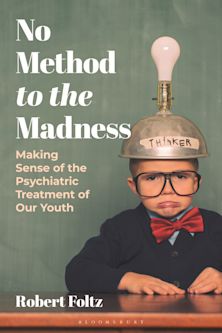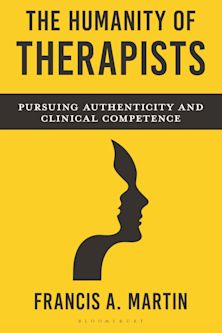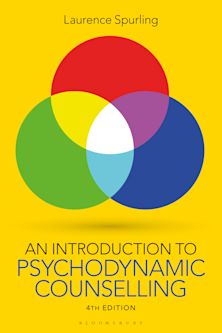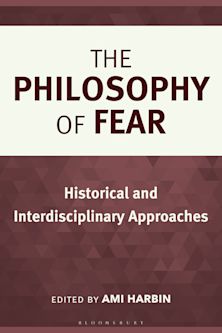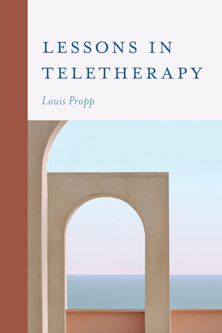- Home
- ACADEMIC
- Psychology
- Psychotherapy & Counselling
- Psychic Mimesis From Bible and Homer to Now
Psychic Mimesis From Bible and Homer to Now
Inner Lives Over Time
Psychic Mimesis From Bible and Homer to Now
Inner Lives Over Time
You must sign in to add this item to your wishlist. Please sign in or create an account
Description
How did we develop our current views of inner life? Psychic Mimesis From Bible and Homer to the Present: Inner Life Over Time reaches back to Biblical and Homeric times, then sweeps across over two millennia of Western literature to answer this question. We discover that while there are discrete contributions from different eras/cultures about inner life—volition, ego ideal, superego, development as a journey, relatedness, even the fact of innerness—there are also at least three trends that have endured from the beginning of our literature and continue as ostinatos beneath each theme and variation of development. These are emotions and our need to conceal and reveal secrets and attachment that is our ability to explore from a secure base. This book takes us through the journey of discovery to arrive at our twenty-first century sense of self and inner life. We follow Auerbach’s text, Mimesis, as a guide through the literature, but add surprises such as Maimonides’ Guide to the perplexed or Rousseau’s Confessions to arrive at the sense that while there are particularities to eras and cultures, there is also something universal that resonates with us and endures.
Table of Contents
Acknowledgments
Introduction: Mimesis: Representation of Inner Reality in Western Mind(s)
Chapter 1. Father–Son Reunions: Interpersonal and Inner Lives of Two Ancient
Cultures, and Universal Emotions
Chapter 2. The Son of God: Figura, or Betzelem Adonai, in the Shadow of God
Chapter 3. Ovid's Incarnations: Instability and Its Passionate Inner Causes
Chapter 4. Maimonides (12th Century): Concealed and Revealed Life
Chapter 5. Dante and Virgil: Rising from Despair (1265–1321)
Chapter 6: Shakespeare: The Leap from Lear to Prospero;
from Tragic to Wise; from Despair to Integrity (and Self-Reflection)
Chapter 7. Rousseau's Confessions and the Birth of Autobiography as a Genre (and Its Twin--Inner Development) (1700s)
Chapter 8. Enchanting Tales, Enchanted Children: The Timelessness of Fairy Tales
(Ancient Egypt to the Present)
Chapter 9. Flaubert: Testing the Tensile Strength Between Style and Character (1800s)
Chapter 10. From the “I” to the “We”: Saul Bellow's Lifetime Evolution
Chapte
Product details
| Published | 11 Apr 2023 |
|---|---|
| Format | Ebook (PDF) |
| Edition | 1st |
| Extent | 1 |
| ISBN | 9781978798427 |
| Imprint | Lexington Books |
| Series | Psychoanalytic Studies: Clinical, Social, and Cultural Contexts |
| Publisher | Bloomsbury Publishing |
About the contributors
Reviews
-
I am impressed not only with the reach of Szajnberg’s project but also with the exquisite sophistication of his language. His goal is to use the 'Western' tradition to place psychoanalysis in a much more complex cultural frame than has yet to be undertaken. Using Auerbach as his Vergil, he plumbs a number to texts, from the Bible(s) to his old teacher Saul Bellow. The stops along the way, Dante, Shakespeare, Rousseau, are paralleled to outliers from Ovid to Maimonides to global fairy tales. This makes the reading not only a pleasure but a sort of adventure, as he is able to link all of these moments with their cultural claims as well as their universal approbation. Rather than being disjointed, such an approach serves to anchor his argument in both the Western cultural tradition as well as in the most engaging for of psychoanalytic speculation.
Sander L. Gilman, Emory University
-
This book is a sweeping study of how we developed concepts of soul-psyche over some twenty-five hundred years in the West. Starting with the Bible and Homer, Nathan Szajnberg follows Auerbach's 'Mimesis' to study literature across time, depicting how we built our current understanding of inner life. From the birth of the Ego Ideal in the Joseph story, the generative emotional life in the Bible, through Homer to the present. This work spans Shakespeare's 'invention of the human,' including self-reflective asides of Cordelia, Edmund and Prospero's last words and moves from 'high style' elegance to the mundane in Flaubert and Bellow. A breathtaking journey, like Odysseus or Aeneas, deepening our sense and feeling for the human journey.
Michael Eigen, author of The Challenge of Being Human
-
Nathan Szajnberg is a polymath, distinguished psychoanalyst, child development researcher, and accomplished novelist and essayist. His book explores the tension between cultural specificity and the yearning for what is common in humankind. This 2,500-year survey of representations of inner life in Western literature and mind is an awesome undertaking, a tour de force… We are all very fortunate that he shares his knowledge with us.
Arnold Richards, former editor of Journal of American Psychoanalytic

ONLINE RESOURCES
Bloomsbury Collections
This book is available on Bloomsbury Collections where your library has access.













